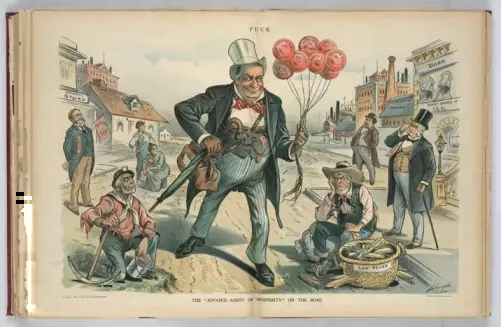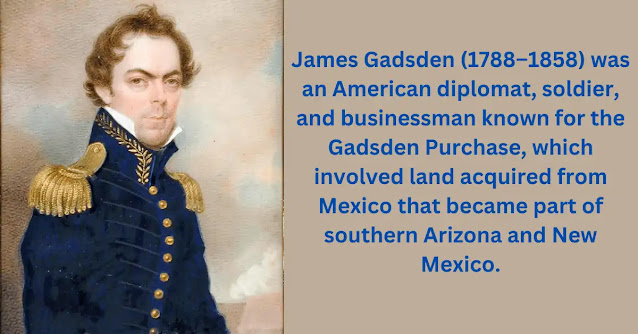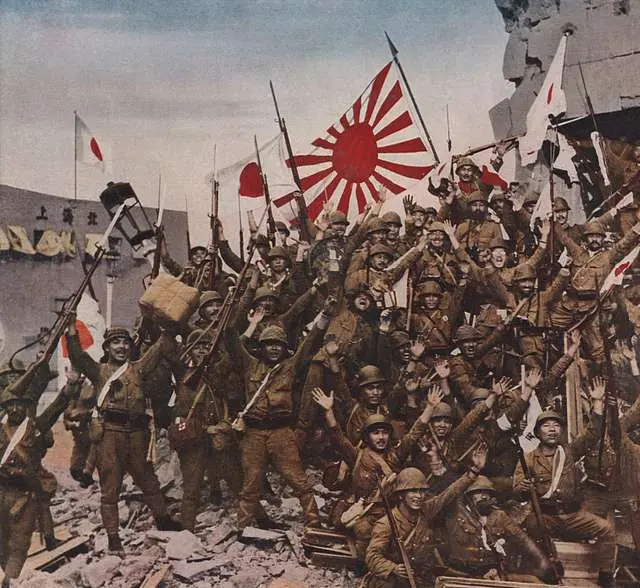The Treaty of Alliance: And Entrance of USA in Geopolitics
During the chaos of the American Revolutionary War, a pivotal diplomatic development emerged that redesigned the sequence of history—the Treaty of Alliance between the newly-formed United States and France. This alliance, forged on February 6, 1778, marked a turning point in the American struggle for independence.
The Treaty of Alliance between the United States and France during the American Revolutionary War was significant as it formalized a military alliance, providing vital support to the American colonies against British rule. This alliance marked a pivotal moment in weakening British dominance and advancing the cause of American independence.
 |
| Image Source: Google, Battle of Saratoga |
Delving into the intricacies of international diplomacy, the article explores how Benjamin Franklin’s diplomatic prowess, united with France’s strategic considerations, led to the formalization of a critical alliance. From clandestine assistance to crucial military support, this
historical journey unveils the Treaty of Alliance as a cornerstone in the fight against British dominance and the quest for American sovereignty.
💻 Table of Contents:
- Alliance and Victory: The Impact of French Aid in the Revolution
- Geopolitical Gambit: The French Challenge to British Supremacy in America
- France’s Calculated Move: Joining the American Rebellion
- The Impact of the Alliance in America’s Fight for Independence
- The Rise and fall of the Franco-American Alliance
- The Enduring Legacy of the Franco-American Alliance
Alliance and Victory: The Impact of French Aid in the Revolution
After France lost a lot of land to Britain in the French and Indian War, they really wanted to get back at them. When the American Revolutionary War started, France saw a chance to not only pay back Britain but also to make them less powerful in the world.
The outbreak of the Revolutionary War provided a golden opportunity for France to not only settle old disputes with Britain but also to strategically weaken its global dominance. The Patriot victory at Saratoga emerged as a pivotal turning point, opening the doors to European recognition of the United States and foreign assistance.
Benjamin Franklin, an experienced diplomat, played a crucial role in securing support from King Louis XVI and the French government. While some aid was provided earlier to the Revolutionary Fighters, but the stunning American victory at the Battle of Saratoga finally convinced France, Spain, and Holland that the American colonies could indeed secure victory.
 |
| Image Source: Google, Battle of Yorktown |
The formal alliance approved by the Continental Congress in May 1778 marked a historic moment, prompting France to dramatically increase its support, providing funds, supplies, soldiers, and naval assistance. The aid from France became instrumental in the eventual success of the American crusade. Notably, Marquis de Lafayette, a French nobleman, emerged as a symbol of unwavering commitment, dedicating his wealth, resources, and personal sacrifice to the American struggle for independence.
Geopolitical Gambit: The French Challenge to British Supremacy in America
In the midst of the American Revolutionary War, the Thirteen Colonies found themselves engaged in a lengthy conflict with Great Britain, desperately in need of foreign support. Benjamin Franklin, a prominent figure in the Continental Congress and a key drafter of the Declaration of Independence, embarked on a crucial mission to France on October 26, 1776. His objective was to secure a formal alliance and treaty, aiming to garner essential diplomatic and financial backing for the newly-formed United States. Accompanied by his young grandson as his secretary, Franklin’s journey marked the beginning of a transformative period that would
last nearly nine years.
France had, until that point, been clandestinely providing crucial aid to the Patriots, including weapons and other essential equipment. However, both parties recognized the need for a more official agreement. Franklin’s arrival in France was met with a warm reception, and he soon established connections with influential government officials. Yet, the French Foreign Minister, Comte de Vergennes, remained cautious and hesitant to fully commit to the American War until a significant turning point occurred.
It was not until October 1777, with the American victory at the Battle of Saratoga, that France’s formal alliance with the American colonies became a reality. On February 6, 1778, the pivotal Treaty of Amity and Commerce and the Treaty of Alliance were signed, solidifying the bond between France and the United States. This historic alliance brought much-needed military aid, including troops, naval support, and vital supplies, ultimately playing a decisive role
in the American victory at Yorktown in 1781.
Franklin’s tenure in France was marked by remarkable achievements, as he tirelessly advocated for the American cause and navigated the complexities of international diplomacy. His efforts reached a conclusion in the negotiation and signing of the Treaty of Paris, which formally concluded the seven-year struggle for American independence. The Treaty of Alliance with France stands as a testament to the pivotal role played by international recognition and support in the eventual success of the American Revolution.
France’s Calculated Move: Joining the American Rebellion
During the American Revolution, the Continental Congress established the Secret Committee of Correspondence to spread word about their cause particularly in Europe. Benjamin Franklin, a member of this committee, wrote to contacts in France, sharing news about the colonists’ resistance. France, having lost to Britain before, saw an opportunity in the colonies’ rebellion to weaken their rival. They secretly aided the United States through agents like American trader Silas Deane.
France’s decision to officially join forces with the American colonies was driven by a combination of strategic, diplomatic, and ideological considerations. Strategically, France identified an opportunity to weaken its longtime rival, Great Britain, by supporting a rebellion within its empire. The potential defeat of the British in the American colonies could diminish its global influence and elevate France’s position on the world stage.
On the diplomatic front, the Franco-American alliance aimed to create a balance of power and form a coalition against British dominance. French leaders, including King Louis XVI and Foreign Minister Charles Gravier, Comte de Vergennes, acknowledged the potential advantages of aligning with the American rebels. Additionally, the success of the American Revolution resonated with Enlightenment ideals, finding support among numerous French intellectuals and political thinkers.
💻 You May Also Like:
- The Spanish-American War: Roots in US Envision of Great Power Status
- The Monroe Doctrine: American Plan for the Americas
- The French Revolution: Causes, Consequences and Legacy
- Manifest Destiny: Geopolitical Doctrine behind U.S. Expansion
The Impact of the Alliance in America’s Fight for Independence:
In the aftermath of the Treaty of Paris in 1763, France immediately began planning for its revenge against Great Britain, following its defeat in the Seven Years War. While initially cautious, France secretly supported the American colonists’ resistance to British taxation without representation. In 1778, France officially allied with the United States, providing crucial military support.
French financial aid was instrumental in sustaining the American war effort. Loans, subsidies, and military supplies provided by the French government played a crucial role in alleviating the economic hardships faced by the Continental Congress. Without this support, the American Continental Army might have struggled to maintain its operations.
 |
| Image Source: Google, Signing of the Treaty of Amity and Commerce and Treaty of Alliance |
The alliance significantly altered the dynamics of the Revolutionary War. Prior to French involvement, the American forces had struggled against the superior British military. With French support, the conflict expanded into a global war, drawing British resources away from the American theater and forcing them to contend with French and Spanish involvement in other parts of the world.
The alliance faced challenges, including failed joint operations and cultural differences. However, France’s involvement shifted the balance of power. In 1781, a decisive campaign unfolded at Yorktown, where French and American forces trapped British General Cornwallis. With naval superiority, the allies forced Cornwallis to surrender, marking a turning point in the war.
France’s contribution proved vital to America’s victory. The nation provided financial aid, military supplies, and deployed troops and naval forces. The assistance from France significantly strained its economy and contributed to the financial crisis that later sparked the French Revolution.
Ultimately, the Alliance with France played a pivotal role in America’s fight for independence, providing vital support that led to the defeat of the British forces.
The Rise and fall of the Franco-American Alliance:
In 1778, the Franco-American alliance emerged as a beacon of hope for the fledgling United States. Benjamin Franklin, alongside Arthur Lee and Silas Deane, signed a pivotal treaty with France, solidifying their bond against British oppression. This move, however, sparked fury in Britain, igniting an escalation of conflict in America.
As the Revolutionary War raged on, France’s support proved indispensable. They provided crucial aid in the form of weapons, soldiers, and naval support, notably contributing to the decisive victory at the Siege of Yorktown. This forced Britain to acknowledge defeat and sign the Treaty of Paris in 1783, marking the official end of hostilities.
Yet, despite the early friendship, cracks began to appear in the alliance. Doubts arose about the longevity of the partnership; particularly the relations between France and the United States deteriorated or weakened as a result of President Washington’s decision to declare neutrality and the subsequent agreements, such as Jay’s Treaty. The French revolutionary government viewed the Jay Treaty as a betrayal of America‘s earlier agreements with France. Consequently, they regarded American merchants trading with France’s adversaries as enemies deserving of similar treatment.
Besides, the violent and radical nature of the French Revolution, along with its impact on European stability, raised concerns among American leaders. Consequently, the United States did not fully support or align itself with the revolution, leading to a separation in their paths.
In the context mentioned, President Washington’s proclamation of neutrality meant that the United States would not align itself with either France or Britain during their ongoing conflicts. It aimed to maintain a position of impartiality and avoid entanglement in the European power struggles.
Jay’s Treaty refers to a 1794 agreement between the United States and Britain, which aimed to settle various disputes including trade issues, territorial boundaries, and the British military occupation of the Northwest Territory.
Public sentiment further soured during President Adams’ administration, leading to the eventual
cancellation of the treaty by Congress in 1798. The seizure of American ships by the French during the Quasi-War further intensified tensions, terminating in the Treaty of Mortefontaine in 1800, which formally dissolved the alliance.
The rise and fall of the Franco-American alliance serve as a historical reminder of the complexities and fragilities inherent in international relationships, echoing throughout history as a testament to the ever-changing nature of diplomacy and allegiance.
The Enduring Legacy of the Franco-American Alliance:
Although the Franco-American alliance was short-lived, its historical and geopolitical significance is immense. The Franco-American alliance played a pivotal role in shaping the peace negotiations that resulted in the Treaty of Paris in 1783.
This alliance was instrumental in securing favorable terms of peace for the United States, including recognition of its independence and the establishment of its boundaries as a new nation. The significance of the Treaty of Alliance of 1778, which solidified the alliance, can be observed in several enduring aspects.
 |
| Image Source: Google, Washington and Lafayette at Mount Vernon |
Firstly, it laid the foundation for future diplomatic and military cooperation between the United States and France. Moreover, the alliance had a profound impact on the geopolitical balance of power. By challenging British dominance, it contributed to the decline of imperial absolutism and influenced the emergence of new nation-states in the aftermath of the war.
Furthermore, the principles of freedom, equality, and democratic governance promoted by the American Revolution deeply resonated with Enlightenment thinkers in France and across the globe. The Treaty of Alliance demonstrated the effectiveness of collective action and diplomacy in challenging established power structures. Lastly, the shared history of fighting for freedom and democracy, created a lasting friendship that has endured through centuries.
Conclusion:
France’s alliance with the United States during the American Revolutionary War, marked by the Treaty of Alliance in 1778, played a pivotal role in securing American independence. This strategic partnership not only shifted the balance of power in the war but also influenced global geopolitics and the emergence of new nation-states.
Finally, the Treaty of Alliance marked a significant milestone in the history of the United States, signifying its entrance into the realm of geopolitics and setting the stage for its future role as a major global player. The treaty’s impact on shaping the geopolitical landscape cannot be overstated, as it laid the foundation for the United States to assert its influence and shape international relations in the years to come.
Frequently Asked Questions
The Treaty of Alliance between the United States and France during the American Revolutionary War was significant as it formalized a military alliance, providing vital support to the American colonies against British rule. This alliance marked a pivotal moment in weakening British dominance and advancing the cause of American independence.
France's decision to officially join forces with the American colonies was driven by a combination of strategic, diplomatic, and ideological considerations. Strategically, France identified an opportunity to weaken its longtime rival, Great Britain, by supporting a rebellion within its empire. The potential defeat of the British in the American colonies could diminish its global influence and elevate France's position on the world stage. On the diplomatic front, the Franco-American alliance aimed to create a balance of power and form a coalition against British dominance.
Franklin's tenure in France was marked by remarkable achievements, as he tirelessly advocated for the American cause and navigated the complexities of international diplomacy. His efforts reached a conclusion in the negotiation and signing of the Treaty of Paris, which formally concluded the seven-year struggle for American independence. The Treaty of Alliance with France stands as a testament to the pivotal role played by international recognition and support in the eventual success of the American Revolution.
France's contribution proved vital to America's victory. The nation provided financial aid, military supplies, and deployed troops and naval forces. The assistance from France significantly strained its economy and contributed to the financial crisis that later sparked the French Revolution. Ultimately, the Alliance with France played a pivotal role in America's fight for independence, providing vital support that led to the defeat of the British forces.
Yet, despite the early friendship, cracks began to appear in the alliance. Doubts arose about the longevity of the partnership; particularly the relations between France and the United States deteriorated or weakened as a result of President Washington's decision to declare neutrality and the subsequent agreements, such as Jay's Treaty. Besides, the violent and radical nature of the French Revolution, along with its impact on European stability, raised concerns among American leaders. Consequently, the United States did not fully support or align itself with the revolution, leading to a separation in their paths. What was the significance of the US-France Treaty of Alliance in the Revolutionary War?
Why did the French support the Americans during the Revolutionary War
How did Benjamin Franklin contribute to the alliance between France and the United States during the American Revolutionary War?
How did France's alliance with the United States impact the American Revolutionary War?
What ended the Franco-American alliance?








